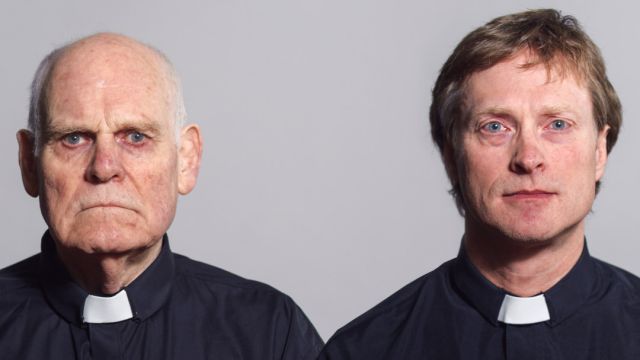Redemption
Set against the backdrop of current events - the Royal Commission into institutional responses to child sexual abuse - Redemption features only two characters, both Catholic priests; one is younger, apparently idealistic, and the other his older mentor, set in his ways. Both share a secret, which is dragged into the spotlight as the 60 minute play progresses - though that secret is pretty easy to guess, even with the limited information I've just imparted, and certainly was telegraphed right from the beginning of the piece.
This was problematic for the script, as much of the storytelling seemed to be talking around that point, filling in space until the moment of revelation. As if to highlight that, the two characters spent a great deal of time talking at cross-purposes and responding to questions with non-sequiturs, a dramatic device which was overused to the point at which the whole exercise became frustrating. It was as if the playwright wanted to beat the audience over the head with the idea that both these characters are in denial - a fact which we all surely got within the first ten minutes or so.
Given the seriousness of the subject matter, a play of this nature requires a great deal of sensitivity, but unfortunately this production fell well short. Playwright Anthony Crowley, who was also acting as the lead character, was trying to make important points, but many of them were lost in the meandering script, in which both characters frequently behaved in oddly unmotivated manner. As performer, Crowley relied heavily on the old fallbacks of shouting and histrionics - frequently collapsing to his knees, spittle flecking from his mouth as he railed unconvincingly at God's injustice. Tom Considine, as the older priest, was a little more solid, but he too frequently seemed to be floundering with insufficient direction.
Despite the above negatives, there was one powerful positive element to the production, and that was its ability to showcase the shortcomings of the priesthood's collective mindset. Crowley clearly has a strong understanding of how many of these priests rationalise their place in the world and the anachronistic nature of this point of view was well communicated.
Alex Paige
Subscribe to our E-Newsletter, buy our latest print edition or find a Performing Arts book at Book Nook.

